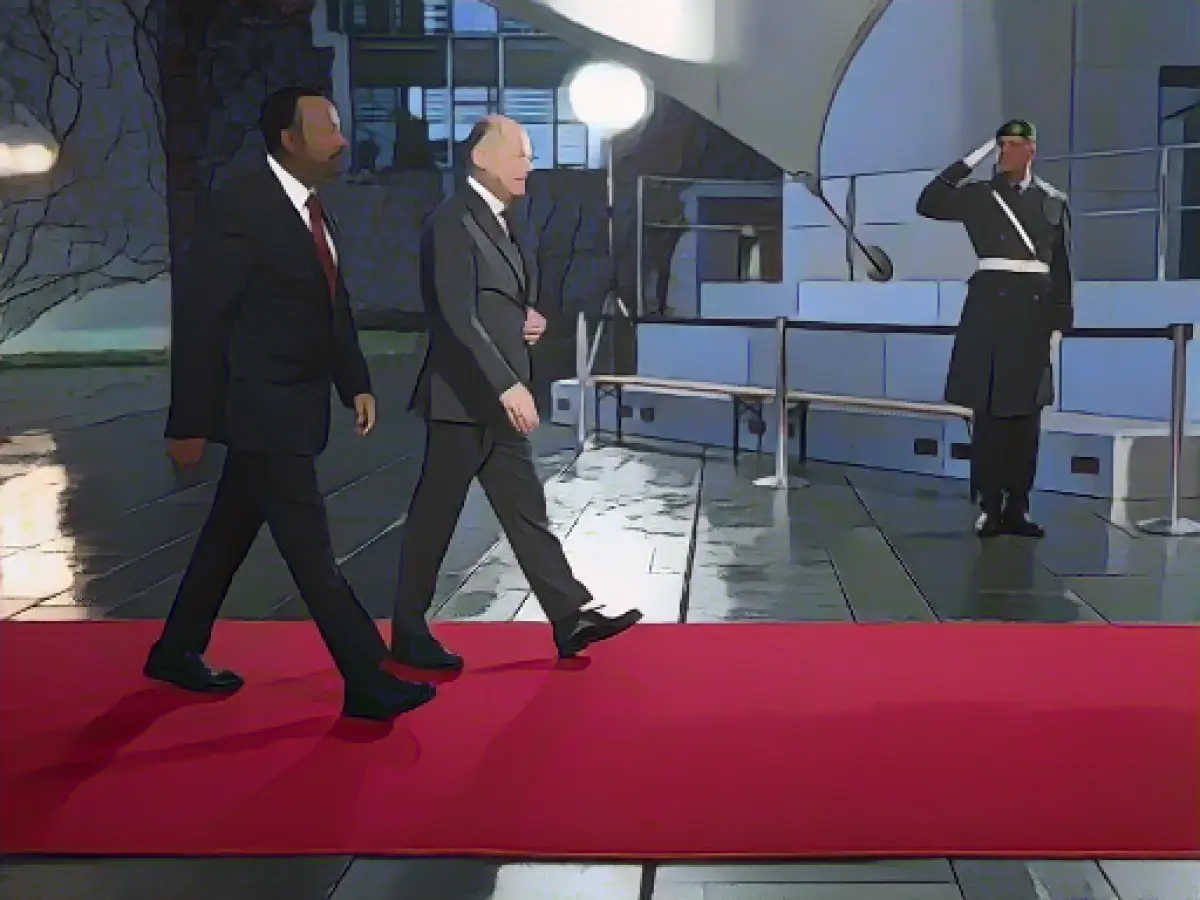Africa summit with numerous heads of state and government
The heads of state and government of numerous African countries are coming to Berlin today to discuss closer economic cooperation with Europe. The main topics of the "Compact with Africa" (CwA) conference are strengthening private investment in Europe's neighboring continent and cooperation on sustainable energy supply.
The conference is the result of an initiative launched by Germany in 2017 during its presidency of the G20 group of states. This aims to improve the economic framework conditions in the CwA states in order to make them more attractive for foreign private investment.
Bilateral talks planned
13 countries on the African continent now belong to the group of states: Egypt, Ethiopia, Benin, Burkina Faso, Côte d'Ivoire, Ghana, Guinea, the Democratic Republic of Congo, Morocco, Rwanda, Senegal, Togo and Tunisia. Other countries are also interested in joining. Representatives from Angola, Kenya and Zambia are therefore also coming to Berlin.
The summit in Berlin will also be attended by EU Commission President Ursula von der Leyen, EU Council President Charles Michel, French President Emmanuel Macron and Dutch Prime Minister Mark Rutte.
According to government sources, the host, Federal Chancellor Olaf Scholz (SPD), will also use the conference for several bilateral talks with individual heads of state and government. Federal President Frank-Walter Steinmeier has invited the participants to a lunch at Bellevue Palace.
Initiative shows effect
Berlin acknowledges that even members of the "Compact with Africa" are not immune to setbacks such as civil wars, coups, the coronavirus pandemic or the consequences of the war in Ukraine. On the other hand, the initiative is having an impact. Compared to other African countries, the CwA countries have recovered much better from the economic consequences of the pandemic. Last year, their economic growth was twice as high as that of other African countries. In 2022, the members would have achieved a six-fold increase in announced foreign direct investment compared to the previous year.
Conversely, Germany and Europe also benefit from this cooperation, as the German government emphasizes. The African continent is rich in natural resources, which the German economy also needs and which can make it less dependent on China and Russia, for example. This also applies to gas and oil deposits, which are needed as a transitional energy source. Even after the phase-out of fossil fuels, Berlin believes that the African continent is interesting due to its high potential for solar and wind power and the possibility of producing cheap green hydrogen.
Potential not yet sufficiently exploited
The huge potential of the African continent has not yet been sufficiently exploited, according to the German government. However, this is also due to deficits in the rule of law and the protection of human rights, widespread corruption and practical problems such as the convertibility of currencies. The aim of "Compact with Africa" is to remove such obstacles.
Germany and Europe offer themselves as long-term, reliable partners who also want to create added value in African countries. In contrast, China, for example, was primarily interested in the exploitation of raw materials in the past, which it then processed in its own country.
- At the Berlin summit, EU Commission President Ursula von der Leyen, EU Council President Charles Michel, French President Emmanuel Macron, and Dutch Prime Minister Mark Rutte will join Federal Chancellor Olaf Scholz from Germany in discussing economic cooperation with various African countries.
- The Federal Government of Germany, led by Chancellor Scholz, plans to use the Africa summit for several bilateral talks with individual heads of state and government, including those from countries not yet part of the "Compact with Africa" group, such as Angola, Kenya, and Zambia.
- The leaders attending the Africa summit, including Olaf Scholz and other heads of state and government, are coming together at the invitation of German President Frank-Walter Steinmeier for a luncheon at Bellevue Palace.
- The international partnership between Europe and African countries, as demonstrated by initiatives like "Compact with Africa," has shown positive results, with CwA countries recovering better from the economic consequences of the pandemic compared to other African nations.
- German Chancellor Olaf Scholz and the European leaders acknowledge the need to address challenges in Africa, such as deficits in the rule of law, human rights, widespread corruption, and currency conversion issues, in order to fully exploit the continent's potential for economic cooperation and add value in African countries.
Source: www.dpa.com








